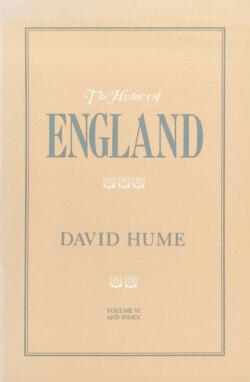The History of England Volume VI

Реклама. ООО «ЛитРес», ИНН: 7719571260.
Оглавление
David Hume. The History of England Volume VI
Отрывок из книги
THE HISTORY
OF ENGLAND
.....
Night and day the ministers had been wrestling with the Lord in prayer, as they termed it; and they fancied, that they had at last obtained the victory. Revelations, they said, were made them, that the sectarian and heretical army, together with Agag, meaning Cromwel, was delivered into their hands. Upon the faith of these visions, they forced their general, in spite of his remonstrances, to descend into the plain, with a view of attacking the English in their retreat. Cromwel, looking through a glass, saw the enemy’s camp in motion; and foretold, without the help of revelations, that the Lord had delivered them into his hands. He gave orders immediately for an attack. In this battle it was easily observed, that nothing, in military actions, can supply the place of discipline and experience; and that, in the presence of real danger, where men are not accustomed to it, the fumes of enthusiasm presently dissipate, and lose their influence. The Scots, though double in number to the English, were soon put to flight, and pursued with great slaughter. The chief, if not only resistance was made by one regiment of Highlanders, that part of the army, which was the least infected with fanaticism. No victory could be more complete than this which was obtained by Cromwel. About 3000 of the enemy were slain, and 9000 taken prisoners. Cromwel pursued his advantage, and took possession of Edinburgh and Leith. The remnant of the Scottish army fled to Sterling. The approach of the winter season, and an ague, which seized Cromwel, kept him from pushing the victory any farther.
The clergy made great lamentations, and told the Lord, that to them it was little to sacrifice their lives and estates, but to him it was a great loss to suffer his elect to be destroyed.u They published a declaration, containing the cause of their late misfortunes. These visitations they ascribed to the manifold provocations of the king’s house, of which, they feared, he had not yet thoroughly repented; the secret intrusion of malignants into the king’s family and even into the camp; the leaving of a most malignant and profane guard of horse, who, being sent for to be purged, came two days before the defeat, and were allowed to fight with the army; the owning of the king’s quarrel by many without subordination to religion and liberty; and the carnal self-seeking of some, together with the neglect of family prayers by others.
.....